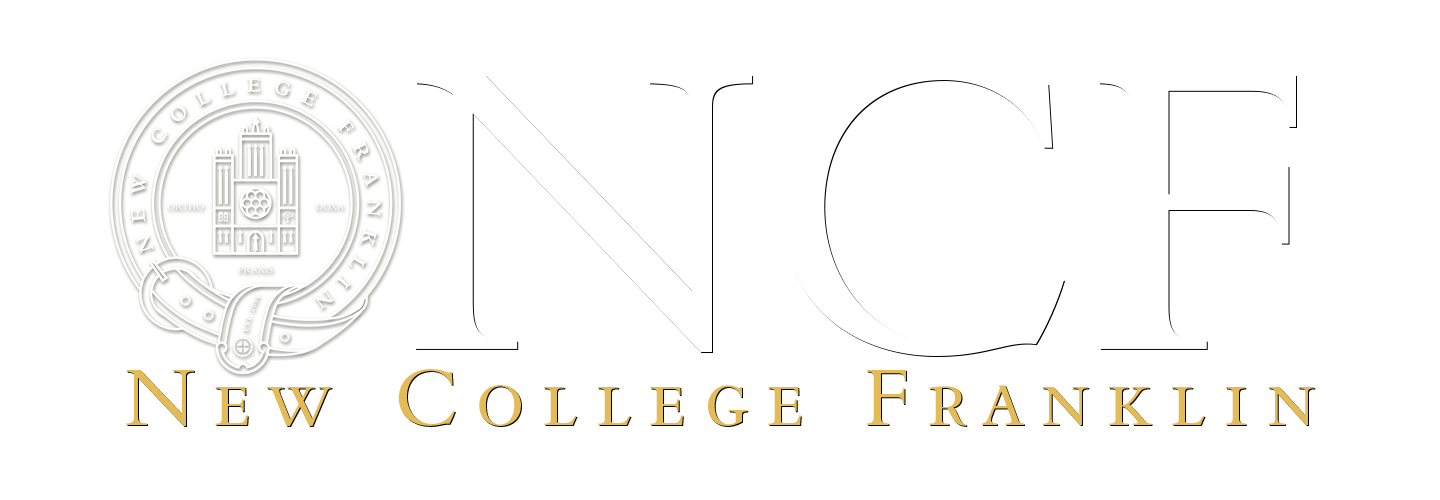Pedagogy
New College Franklin utilizes several traditional methodologies appropriate to different aspects of the curriculum. The Shema in Deuteronomy is formative for our pedagogy: “Hear, O Israel: The Lord our God, the Lord is one. You shall love the Lord your God with all your heart and with all your soul and with all your might. And these words that I command you today shall be on your heart” (Deut.6:4-6). The Shema calls us especially to words. Therefore, the majority of our methodologies revolve around words, emphasizing the great books of Western civilization for the sake of knowing the God who is One. As a community of learners, fellows and students together, we gather around these books to pursue knowledge and wisdom.
Our pedagogy begins with the relationship between students and fellows. We do not position our fellows before students as the source of knowledge but as experienced guides to knowledge. Fellows and students learn together, side by side, and the key distinction between these two learners is that fellows are farther along the path to knowledge and wisdom. Their lectures, questions, and guidance reflect their experience, but even the fellow’s experience is not the source of knowledge. Fellows and students gather “to hear the Lord is one” and to put these words on their hearts.
New College Franklin follows the British model that emphasizes residential academic life: a collegiate way of academics that encourages students to live in community, engaged in the life of the local community. In following these principles, New College Franklin uses traditional academic terms of fellow and seminar. Fellows are faculty scholars in residence. A fellow is first and foremost a teacher and mentor, not primarily a specialist. A seminar is a discussion-based class centered around a broad topic or more extensive reading.
Knowledge of the Lord is impressed from fathers to children, from fellows to students, as they talk, walk, and even rest (Deut. 6:6-9). The knowledge of the Lord is to be bound to our minds, to flow from our hands and be manifest in the domesticity of hearth and home. This knowledge includes the responsibility to respond to the call to serve others, and should demonstrate commitment to service and civic engagement. There is no end to the study of the Lord and to loving God and loving your neighbor.
As a college, we structure our academic experience the traditional seminar. This format is flexible and discussion-based to allow fellows and students to interact in a way that is conducive to the texts and ideas. The seminar is a rigorous discussion-based class in which students are required to participate in a Socratic discussion on a common reading.
Seminars may discuss large or small readings in one class, and the goal in these cases is to read and discuss on a macro or micro-exegesis level. The Moral Philosophy interdisciplinary seminar is a special example of this macro-exegesis that integrates the disciplines of history, literature, theology, philosophy, art and music all within one seminar. The seminar provides the opportunity to disciple students in the academic process through means of discussion-based learning, integration, and application that adapts to individual needs.

